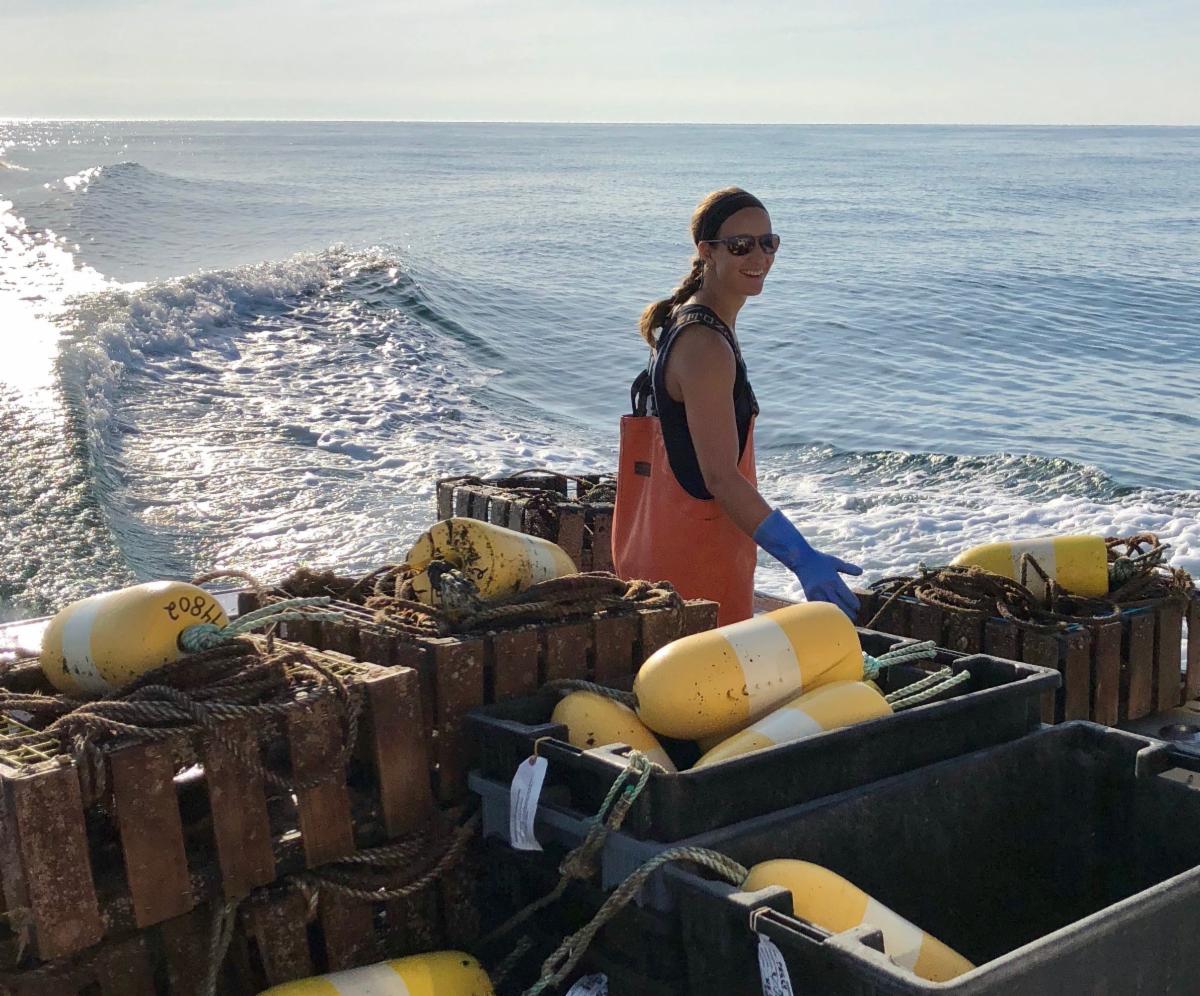The passage by Congress this month of the Young Fishermen’s Development Act creates a $2 million annual grant fund to train and foster the next generation of U.S. commercial fishermen.
Twin bills H.R 1240 and S. 496 passed with bipartisan support, five years after the concept was first proposed by the Fishing Communities Coalition, a national advocacy group with membership of more than 1,000 independent fishermen and seafood-related business owners in small-boat fishing communities from Maine to Alaska.
Authorized for the next six years, the program to be administered through Sea Grant will allow “fishing associations, universities, tribal organizations, and others to compete for grant funding to train young commercial fishermen in sustainable fishing and business practices,” according to the coalition. “It solidifies and unites current piecemeal training efforts into a cohesive, national initiative to advance this critical mission.”
The program is modeled on the U.S. Department of Agriculture’s successful Beginning Farmer and Rancher Development Program, helping entry-level agriculture. Advocates say it’s a critical response to demographic shifts in some fisheries and fishing communities. In some regions like New England the average age of fishermen has shifted upward by 10 years compared to earlier generations – a “greying of the fleet” that portends problems for the industry’s long-term prospects.
The annual $2 million budget will be fully paid for from fines paid by fishermen who violate fishery regulations. Grants will run up to three years, be capped at $200,000 annually and cannot be used to purchase fishing permits, quota, or other harvesting rights.
The Alaska Longline Fishermen's Association was among those working to develop the legislation and the final sponsors included Sens. Dan Sullivan and Don Young, both R-Alaska.
"Young people entering our nation's fisheries deserve support to succeed in this challenging but vital business,” said Linda Behnken, executive director of the longline association. "Commercial fishing demands a broad skillset to operate safely and successfully. We are thrilled by the passage of the YFDA and grateful for the effective leadership provided by Alaska's Congressional delegation."
Sullivan said Alaska is a world leader in seafood “thanks to our world-class sustainably-managed fisheries and our countless hard-working fishermen. The sustainability and endurance of this vital industry, which employs more people in Alaska than any other, depends on up-and-coming qualified fishermen."
The Cape Cod Fishermen’s Alliance is also part of the coalition, and its fishermen have advocated for the act in Washington D.C., with the support of Sens. Edward Markey and Elizabeth Warren, and Reps. Seth Moulton and William Keating, all D-Mass.
“Despite centuries of fishing tradition in Massachusetts’ coastal communities, new fishermen are finding it a challenge to join the industry,” Markey said in a statement after the bills’ passage. “Our legislation will help ensure that our fishing industry continues to attract and grow future generations of young fishermen. More young men and women will be pushing off the dock into new careers and fully participating in the economy of their communities.”
“The Young Fishermen’s Development Act is crucial to the success of the Cape’s small-boat fleets and the communities that rely on commercial fishing, an industry that helped build the peninsula and is a vital part of the new blue economy,” said John Pappalardo, CEO of the Cape Cod Commercial Fishermen’s Alliance.
“Successful captains and their dedicated crews have swapped out their oilskins for suits, ties and skirts over the years to travel to Washington, D.C. to tell the story of why the bill helps guarantee a brighter future for the next generation and also offers increased opportunities for the country’s consumers to enjoy fish caught off America’s shores,” he said.
One of those was Cape fisherman Stephanie Sykes, one of a group of alliance members who made the last lobbying push in Congress for the act.
“The passing of the Young Fishermen’s Development Act is a huge achievement for small-boat fleets across the country,” said Sykes. “It is uplifting to see the industry receive the legislative support for our young fishermen training programs that will help the commercial fishing industry thrive.”
Key provisions of the act include:
• Competitive grant program for collaborative state, tribal, local or regionally based networks or partnerships
• Mentorship/apprenticeship program to connect retiring fishermen and vessel owners with new and beginning fishermen
• Support for regional training and education programs focused on sustainable and accountable fishing practices, marine stewardship and sound business practices
• Grants may not exceed a period of longer than three years, with a maximum grant amount of $200,000/year
• $2 million annual authorization for six years for program implementation







